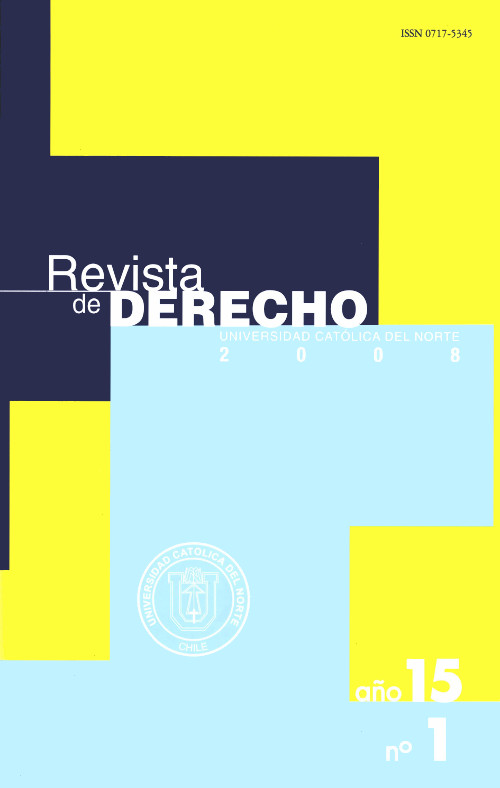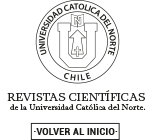Estado no confesional y laicismo
DOI:
https://doi.org/10.22199/S07189753.2008.0001.00008Keywords:
Religious freedom, Freedom of conscience, Freedom of thought, Secularism, Atheism, Non-Confessionalism of the StateAbstract
The fact that a State might declare itself as non-confessional and ascribes to the right of religious freedom does not mean that it has to adopt an attitude of indifference or, even worse, of rejection to the religious experience of its citizens. Secularism, in its nineteenth century version, is then strange to the notion of non-confessional State or Secular State. The topic is raised making a distinction between the rights of freedom of thought, freedom of conscience, and religious freedom, reinforcing the autonomy of each one and defining the locus iuris ofatheism, to later analyze the principies that shatl orient the State's performance, facing the religious experience as a social factor, this is, the principies of religious freedom, ofsecularism or non-confessionalism, of equal rights and cooperation.
References
ORREGO OLMEDO, Karem Andrea (2007). Estatuto jurídico de la enseñanza religiosa en Chile. Valparaíso: Tesina Escuela de Derecho Pontificia Universidad Católica de Valparaíso. Director, C. Salinas Araneda, inédita.
REPÚBLICA DE CHILE, Actas oficiales de la comisión constituyente. Sesión 130°, celebrada en martes 17 de junio de 1975.
SALINAS ARANEDA, Carlos (2001). Sectas y derecho. La respuesta jurídica al problema de los nuevos movimientos religiosos. Valparaíso: Ediciones Universitarias de Valparaíso de la Universidad Católica de Valparaíso.
_____ (2001-2002). "Confesión religiosa: los intentos hacia un concepto jurídico". En Liberta religiosa e ordinamenti democratici, volumen especial de Religione e sette nel mondo, vol. 22, pp. 75-129
_____ (2002). "Los principios informadores del derecho eclesiástico del Estado de Chile". Revista de Derecho de la Universidad Católica de Valparaíso, vol. 23, pp. 79- 137.
_____ (2004). Lecciones de derecho eclesiástico del Estado de Chile. Valparaíso: Ediciones Universitarias de Valparaíso de la Pontificia Universidad Católica de Valparaíso.
SCOLA, cardenal Angelo (2007). Una nueva laicidad. Madrid : Ediciones Encuentro y Ceu Ediciones.
VERDUGO MARINKOVIC, Mario PFEFFER URTEAGA, Emilio NoGUEIRA ALCALÁ, Humberto (1994). Derecho constitucional. Santiago: Editorial Jurídica de Chile.
VILADRICH, Pedro Juan (1980). "Los principios informadores del derecho eclesiástico español". En GONZÁLEZ DEL VALLE, José María et alii, Derecho eclesiástico del estado español. Pamplona: Eunsa, pp. 211-317.
_______ (2007). "Libertad religiosa y Estado laicista". Palabras, 518.
Published
How to Cite
Issue
Section
Aquellos autores/as que tengan publicaciones con esta revista, aceptan los términos siguientes:
- Los autores/as conservarán sus derechos de autor y garantizarán a la revista el derecho de primera publicación de su obra, el cuál estará simultáneamente sujeto a la Licencia de reconocimiento de Creative Commons que permite a terceros compartir la obra siempre que se indique su autor y su primera publicación esta revista.
- Los autores/as podrán adoptar otros acuerdos de licencia no exclusiva de distribución de la versión de la obra publicada (p. ej.: depositarla en un archivo telemático institucional o publicarla en un volumen monográfico) siempre que se indique la publicación inicial en esta revista.
- Se permite y recomienda a los autores/as difundir su obra a través de Internet (p. ej.: en archivos telemáticos institucionales o en su página web) antes y durante el proceso de envío, lo cual puede producir intercambios interesantes y aumentar las citas de la obra publicada. (Véase El efecto del acceso abierto)





_(1).png)












